Search
Summary 
Loading AI-generated summary based on World History Encyclopedia articles ...
Search Results
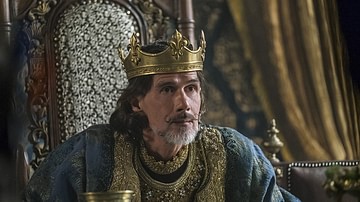
Definition
Charles the Simple
Charles the Simple (Charles III of France, l. 879-929 CE, r. 893-923 CE) was king of West Francia (roughly modern-day France) toward the end of the period of Viking raids in the region. His epithet `the simple' refers to his habit of being...
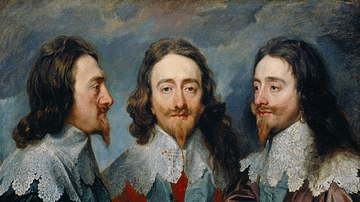
Definition
Charles I of England
Charles I of England (r. 1625-1649) was a Stuart king who, like his father James I of England (r. 1603-1625), viewed himself as a monarch with absolute power and a divine right to rule. His lack of compromise with Parliament led to the English...
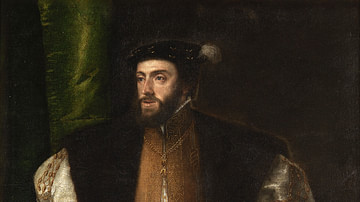
Image
Charles V with a Dog by Titian
A portrait of Charles V, Holy Roman Emperor (r. 1519-1556) with his dog by the Italian Renaissance artist Titian (c. 1487-1576), completed in 1533.
Prado Museum, Madrid.
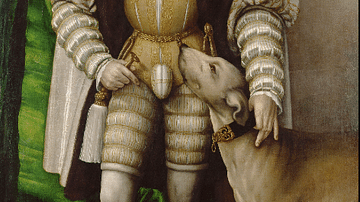
Image
Charles V, Holy Roman Emperor
A 1532 portrait by Jakob Seisenegger of Charles V, Holy Roman Emperor (r. 1519-56) with his dog. (Kunsthistorisches Museum, Vienna)
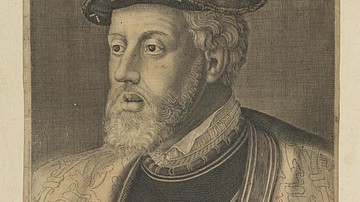
Image
Charles V, Holy Roman Emperor
Portrait of Charles V, Holy Roman Emperor (1500-1558), line engraving on paper by Barthel Berham.
Scottish National Portrait Gallery, Edinburgh.
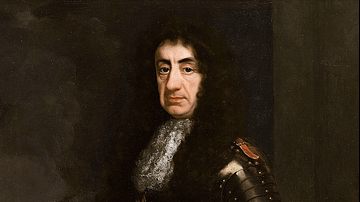
Definition
Charles II of England
Charles II of England (r. 1660-1685) was the king of Scotland (1649-1685) before the Restoration in 1660 also made him king of England and Ireland. Charles was a charming and easygoing monarch who took a keen interest in sports, science...
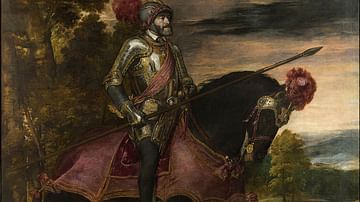
Image
Equestrian Portrait of Charles V, Holy Roman Emperor
Equestrian portrait of Charles I of Spain aka Charles V, Holy Roman Emperor by Titian depicting Charles V at the Battle of Mühlberg in April 1547 where he defeated the Protestant forces of the Schmalkaldic League, 1548. Museo del Prado...
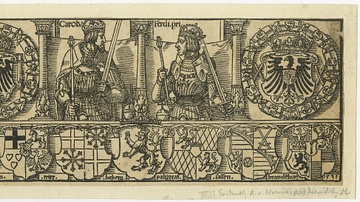
Image
Holy Roman Emperors Charles V & Ferdinand I
Illustration of the Holy Roman Emperor Charles V (r. 1519-1556 CE) and Ferdinand I. The illustration depicts the Habsburg brothers Charles V (left) sitting by the imperial coat of arms, while Ferdinand (right) is flanked by the Habsburg coat...
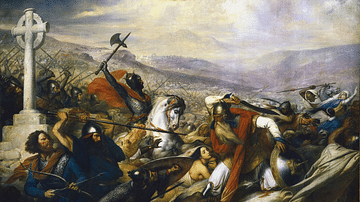
Article
The Legacy of Charles Martel & the Battle of Tours
The Battle of Poitiers aka the Battle of Tours took place over roughly a week in early October of 732. The opposing sides consisted of a Frankish army led by Charles Martel (r. 718-741) against an invading Muslim army under the nominal sovereignty...
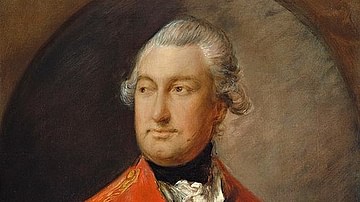
Definition
Charles Cornwallis
Charles Cornwallis (1738-1805), 1st Marquess and 2nd Earl Cornwallis, was a British military officer and statesman best known for surrendering to George Washington at the Siege of Yorktown, the final decisive engagement of the American Revolutionary...